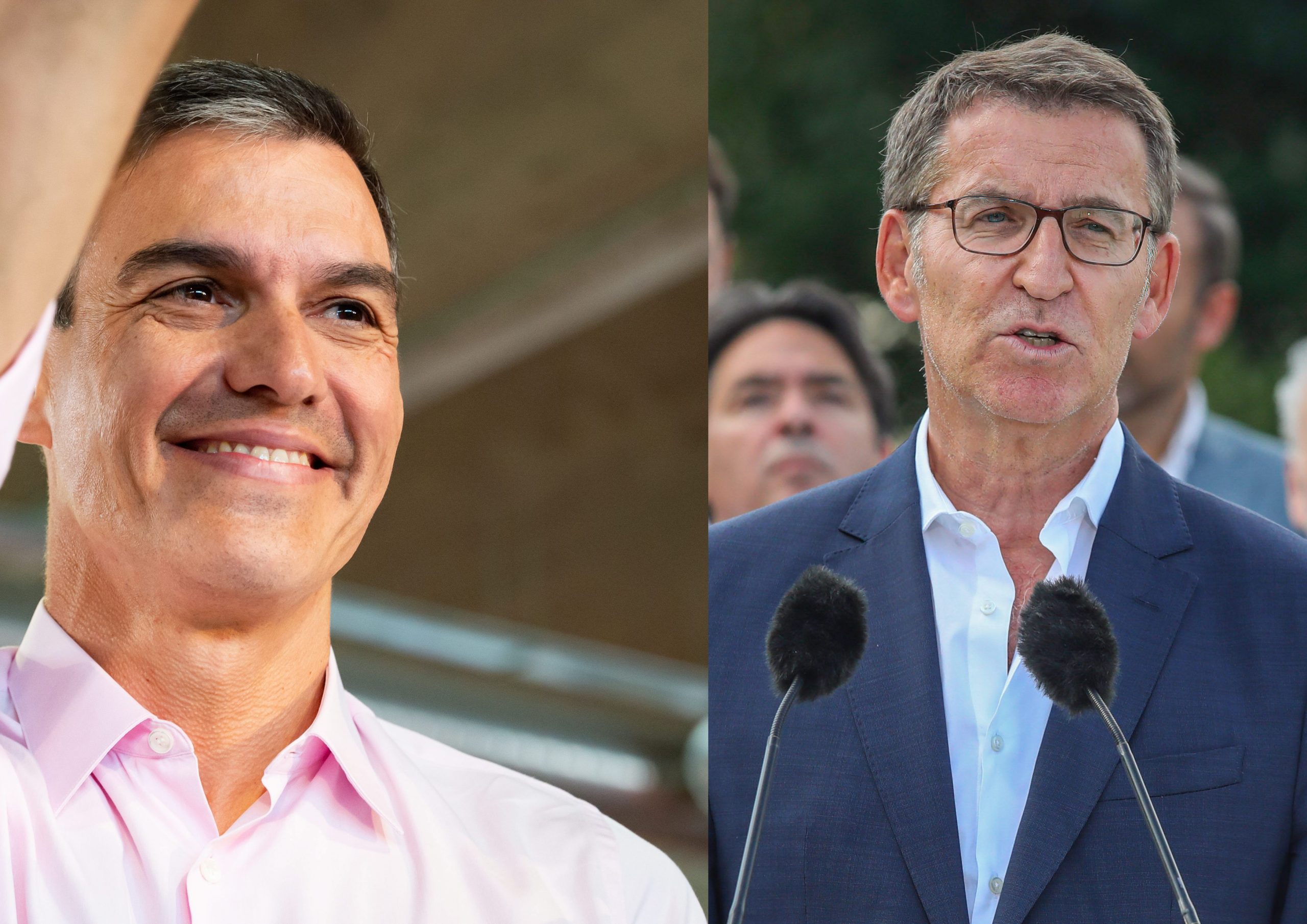IT WAS billed as the ‘decisive face to face’ debate between Spanish Prime Minister Pedro Sanchez and Popular Party (PP) leader Alberto Nuñez Feijoo, the two main candidates at the July 23 general election. But in the end what played out live on Spanish television on Monday night was a fractious clash of the two politicians, with little control exerted by the moderators.
Sanchez, who has usually emerged victorious from previous debates with Feijoo, was expected to come out on top once more at the debate, the only that the pair will hold before the snap poll is held in just a few weeks time. But most commentators gave the PP leader the victory, including the usually staunchly left-wing El Pais newspaper.
Almost as soon as the debate – which was simultaneously broadcast on television channels Antena 3 and La Sexta, as well as the Onda Cero radio station – got going, the two politicians mutually accused each other of lying and misrepresenting facts and figures.
They discussed topics including the economy, pensions, housing and gender policies, but regularly interrupted each other and paid scant attention to the efforts of the moderators at the debate to rein them in.
“I am bothered that you are governing alongside Vox,” Sanchez said to Feijoo at one point, in reference to the deals that the PP has done with the far-right party to form local councils and regional governments in the wake of the May 28 local and regional elections. “I believe that the PP and Vox are the same,” he added.
“You will always be known for the fact that there are 117 rapists in the street,” Feijoo said to Sanchez, in reference to the Socialist-led governments ‘only yes means yes’ law, which was aimed at focusing on consent in sexual assault cases but inadvertently led to the early release of convicted sex offenders.
Maria Jose Canel, Professor of Political Communication at Madrid’s Complutense University, told news agency Reuters that while Sanchez had been more “histrionic” than she had anticipated, the usually gaffe-prone Feijoo had performed better than she expected.
The opinion polls ahead of the July 23 election predict that the PP will be the winning party, but the only likely way that Feijoo will become prime minister and be able to form a government is if he does a coalition deal with Vox.
The Socialists, meanwhile, may be able to repeat a leftist coalition similar to the one that has been in place since early 2020. But instead of current governing partner Unidas Podemos (United We Can), they would have to do a deal with the new leftist alliance Sumar, which has absorbed parties including Unidas Podemos and green groups.
Even then the two groups would likely need the support of other parties in Congress to form a government, according to the polls.
Read more:
- Explainer: What you need to know about Spain’s July 23 general election
- Billboard installed by right-wing evictions company in Madrid targeted by protestors
- Spain’s Popular Party distances itself from Vox ad throwing feminism and the LGBTQ+ flag in the bin
Click here to read more Politics News from The Olive Press.








